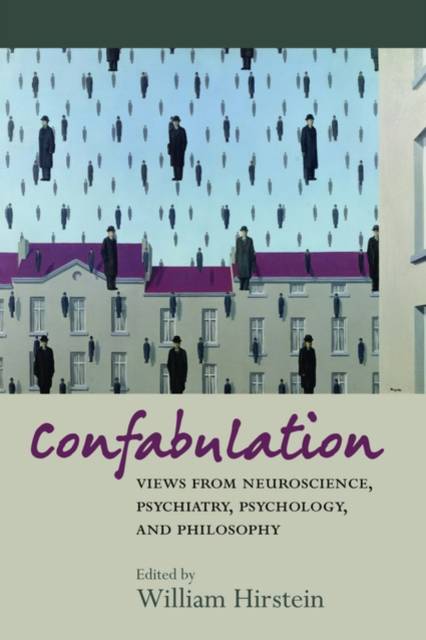
- Retrait gratuit dans votre magasin Club
- 7.000.000 titres dans notre catalogue
- Payer en toute sécurité
- Toujours un magasin près de chez vous
- Retrait gratuit dans votre magasin Club
- 7.000.000 titres dans notre catalogue
- Payer en toute sécurité
- Toujours un magasin près de chez vous
Confabulation
Views from Neuroscience, Psychiatry, Psychology, and Philosophy
William Hirstein
Livre broché | Anglais
122,95 €
+ 245 points
Description
When people confabulate, they make an ill-grounded claim that they honestly believe is true. There have been countless fascinating examples of confabulatory behaviour - people falsely recalling events from their childhood, the subject who was partially blind but insisted he could see, the amputee convinced that he retained all his limbs, to the patient who believed that his own parents had been replaced by imposters. Though confabulations can result from neurological damage, they can also appear in perfectly healthy people. Yet, how can confabulators so often appear to be of sound mind, yet not see their own errors? This book brings together some of the most advanced thinking on confabulation in neuroscience, psychiatry, psychology, and philosophy, in an attempt to understand this phenomenon; what are the clinical symptoms of each type of confabulation? Which brain functions are damaged in clinical confabulators? What are the neuropsychological characteristics of each type? What causes confabulation in healthy individuals? One reason why the study of confabulation is important is that there is wide agreement that the malfunctions that produce confabulation are malfunctions in significant, high-level cognitive processes. With contributions from a range of leading psychologists, psychiatrists, neuroscientists, and philosophers, the book develops an interdisciplinary dialogue that promises to increase our understanding of confabulatory neurological patients, and perhaps help us better understand memory, consciousness, and human nature itself.
Spécifications
Parties prenantes
- Auteur(s) :
- Editeur:
Contenu
- Nombre de pages :
- 312
- Langue:
- Anglais
Caractéristiques
- EAN:
- 9780199208913
- Date de parution :
- 11-10-09
- Format:
- Livre broché
- Format numérique:
- Trade paperback (VS)
- Dimensions :
- 155 mm x 231 mm
- Poids :
- 521 g







